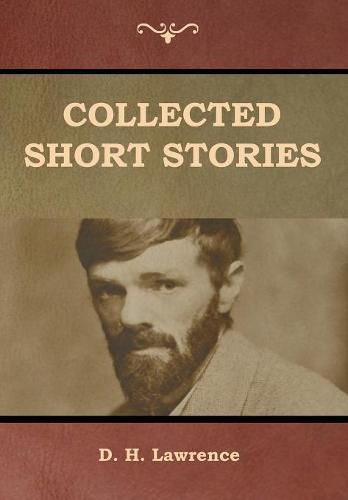Readings Newsletter
Become a Readings Member to make your shopping experience even easier.
Sign in or sign up for free!
You’re not far away from qualifying for FREE standard shipping within Australia
You’ve qualified for FREE standard shipping within Australia
The cart is loading…






This title is printed to order. This book may have been self-published. If so, we cannot guarantee the quality of the content. In the main most books will have gone through the editing process however some may not. We therefore suggest that you be aware of this before ordering this book. If in doubt check either the author or publisher’s details as we are unable to accept any returns unless they are faulty. Please contact us if you have any questions.
David Herbert Lawrence (11 September 1885 - 2 March 1930) was an English writer and poet. His collected works represent, among other things, an extended reflection upon the dehumanising effects of modernity and industrialisation. Some of the issues Lawrence explores are sexuality, emotional health, vitality, spontaneity, and instinct.
Lawrence’s opinions earned him many enemies and he endured official persecution, censorship, and misrepresentation of his creative work throughout the second half of his life, much of which he spent in a voluntary exile he called his savage pilgrimage . At the time of his death, his public reputation was that of a pornographer who had wasted his considerable talents. E. M. Forster, in an obituary notice, challenged this widely held view, describing him as the greatest imaginative novelist of our generation. The philosopher Bertrand Russell characterised Lawrence as a proto-German Fascist . Later, the literary critic F. R. Leavis championed both his artistic integrity and his moral seriousness.
D.H. Lawrence is best known for his infamous novel ‘Lady Chatterley’s Lover, ’ which was banned in the United States until 1959. He is widely regarded as one of the most influential writers of the 20th century. (Wikipedia.oeg)
$9.00 standard shipping within Australia
FREE standard shipping within Australia for orders over $100.00
Express & International shipping calculated at checkout
This title is printed to order. This book may have been self-published. If so, we cannot guarantee the quality of the content. In the main most books will have gone through the editing process however some may not. We therefore suggest that you be aware of this before ordering this book. If in doubt check either the author or publisher’s details as we are unable to accept any returns unless they are faulty. Please contact us if you have any questions.
David Herbert Lawrence (11 September 1885 - 2 March 1930) was an English writer and poet. His collected works represent, among other things, an extended reflection upon the dehumanising effects of modernity and industrialisation. Some of the issues Lawrence explores are sexuality, emotional health, vitality, spontaneity, and instinct.
Lawrence’s opinions earned him many enemies and he endured official persecution, censorship, and misrepresentation of his creative work throughout the second half of his life, much of which he spent in a voluntary exile he called his savage pilgrimage . At the time of his death, his public reputation was that of a pornographer who had wasted his considerable talents. E. M. Forster, in an obituary notice, challenged this widely held view, describing him as the greatest imaginative novelist of our generation. The philosopher Bertrand Russell characterised Lawrence as a proto-German Fascist . Later, the literary critic F. R. Leavis championed both his artistic integrity and his moral seriousness.
D.H. Lawrence is best known for his infamous novel ‘Lady Chatterley’s Lover, ’ which was banned in the United States until 1959. He is widely regarded as one of the most influential writers of the 20th century. (Wikipedia.oeg)